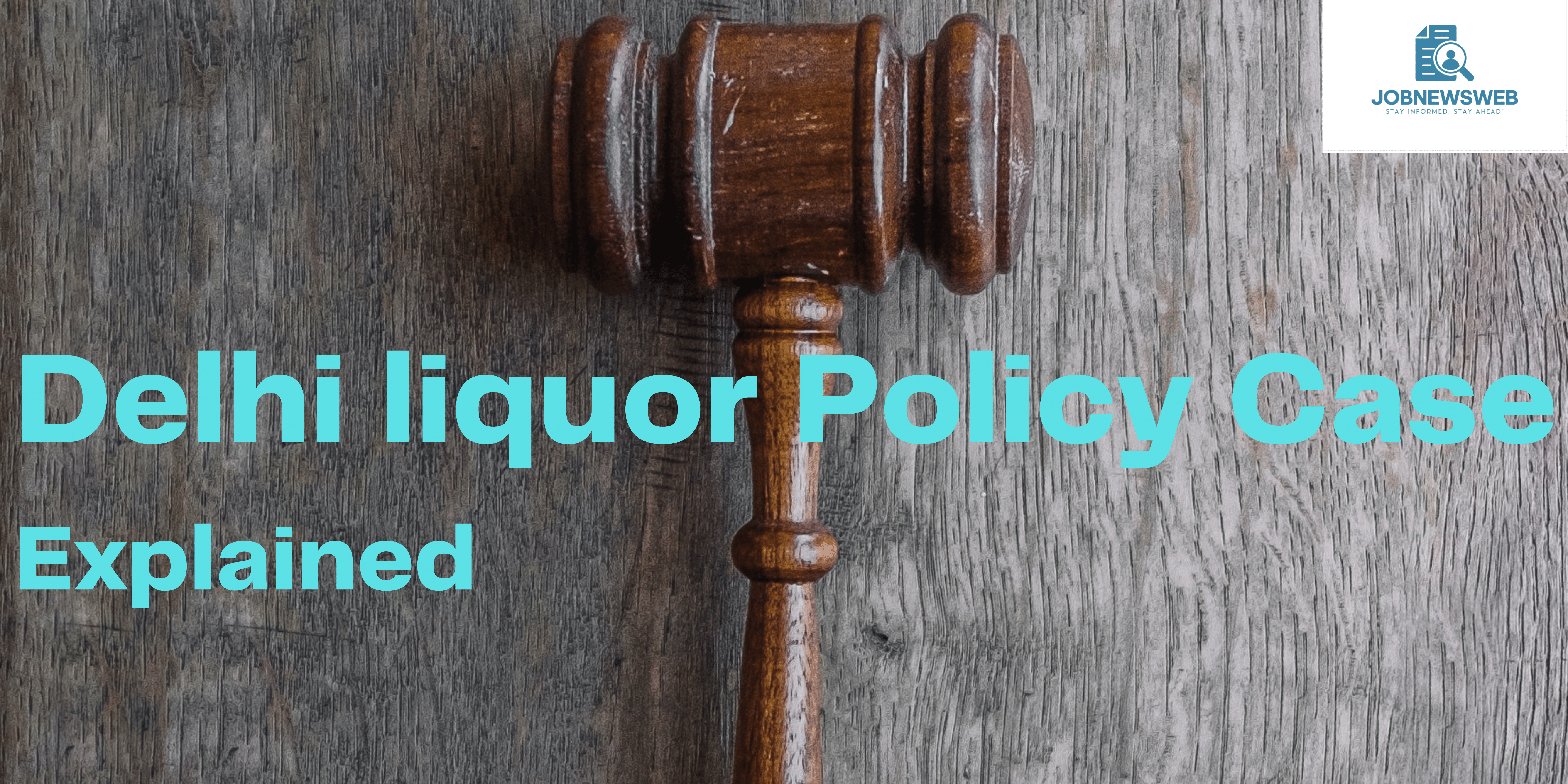Delhi liquor Policy Case Explained:- The Enforcement Directorate questioned K Kavitha, a Bharat Rashtra Samithi leader and the daughter of Telangana Chief Minister K Chandrasekhar Rao, for nine hours in the Delhi liquor policy case. She has been summoned once more on March 16.
AAP leader and Delhi Deputy Chief Minister Manish Sisodia is already being held by the ED in the same case. He was also arrested by the CBI for alleged corruption in the formulation of Delhi’s new liquor policy, which was later scrapped.
The investigation into the Delhi liquor policy case has centered on an alleged network of middlemen, businessmen, and politicians known as the “South Group” by central agencies.
The Central Bureau of Investigation (CBI) arrested Delhi Deputy Chief Minister Manish Sisodia on Sunday in connection with the alleged corruption in formulating and implementing the now-canceled liquor policy for 2021-22.
Manish Sisodia was arrested after being questioned by the investigation agency for more than eight hours. Here’s an explanation of the scam and how the Delhi Deputy Chief Minister was involved in it.
KCR’s Daughter Questioned in Delhi Liquor Policy Case, Summoned Again
After nearly nine hours of questioning in connection with the Delhi liquor excise policy case, Bharat Rashtra Samiti (BRS) MLC and Telangana CM K Chandrashekhar Rao’s daughter Kavitha Kalvakuntla left the Enforcement Directorate’s office in New Delhi. Around 11 a.m., she arrived at the ED headquarters on APJ Abdul Kalam Road from her father’s official residence on Tughlak Road, which is about 1.5 kilometers away.
After being summoned by the ED, Kavitha joined the investigation. The ED informed a Delhi court on Friday that it had a statement from Butchibabu Gorantla, a Hyderabad-based chartered accountant and an accused in the case, that “there was a political understanding between K Kavitha and the Deputy CM” while securing custody of former Delhi Deputy Chief Minister Manish Sisodia.
why Manish Sisodia jailed Hindi
what is Delhi liquor policy case? What was the new liquor policy in Delhi?
The new liquor policy marked the government’s exit from the liquor business and was implemented in an effort to increase government revenues, improve customer experience, and end the influence and black marketing of the liquor mafia. The new policy, which went into effect in November 2021, divided Delhi into 32 zones, with each zone containing 27 liquor vends.
To make the trade more appealing, the government allowed licensees to set their own prices, regardless of the MRP, and to offer unlimited discounts to customers. Shops were allowed to stay open until 3 a.m., and other services such as home delivery to customers were permitted. She has been summoned once more on March 16
what is liquor policy case? And, where did the Delhi Liquor Policy go wrong?
- On the surface, Delhi’s excise policy appeared to be very promising. Bidding against a reserve price of Rs 7,041 crore netted the government approximately Rs 8,917 crore. However, it was withdrawn eight months after being implemented due to allegations of corruption and favoritism in license granting.
- The implementation did not go as smoothly as planned. Only a few stores were able to open on the first day. Later, approximately 644 liquor vends could open before retailers began surrendering licenses due to business viability.
- As the Delhi government permitted stores to sell below MRP in order to encourage healthy competition, deep discounts by larger retailers made the business difficult for others.
- By June, 90% of the liquor on the market was reportedly selling at a discount of nearly 50%. Only licensees with manufacturing and wholesale operations were able to keep the business running.
- The Delhi Liquor Traders Association filed a case in the Delhi High Court last month, calling the new excise policy unconstitutional because it sought a lump sum payment of duty rather than per bottle.
- The Economic Offences Wing of the Delhi Police launched an investigation after allegations surfaced about the undue influence of some “powerful” groups in securing liquor licenses.
Manish Sisodia and the Delhi Liquor Policy
- On July 8, 2022, Delhi Chief Secretary Naresh Kumar discovered irregularities and procedural lapses in the new liquor policy. He sent a report to Lieutenant Governor VK Saxena accusing Manish Sisodia of providing undue benefits to those with liquor licenses. He claimed the benefits were extended in exchange for money used by the AAP in the Punjab Assembly elections.
- The report alleged violations of the Delhi Excise Act of 2009, the Transaction of Business Rules (ToBR) of 1993, the Delhi Excise Act of 2009, and the Delhi Excise Rules of 2010. It claimed that the liquor mafia received a benefit of Rs 144 crores as well.
- According to the report, Manish Sisodia allegedly waived the license fee, which was to be paid by private liquor vendors, under the guise of the pandemic. According to the report, he also caused a loss to the Excise Department while providing benefits to liquor licensees by waiving the import pass fee of Rs 50 per beer case.
- The larger issue of Delhi liquor policy controversy reversals is widespread throughout the country, hampering India’s Rs 3.9 trillion alcoholic beverages market, which employs approximately 1.5 million people.

